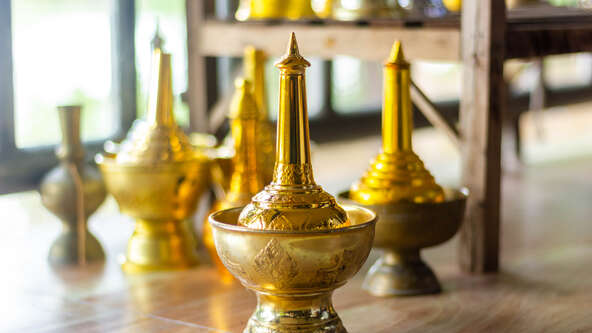Religious Traditions and Cremation Beliefs: Hinduism

Several world religions incorporate cremation into their belief system. One religion makes cremation a mandate. Learn about the world religions that encourage their followers to be cremated.
Cremation is becoming more accepted in Judaism, Catholicism, and other major world religions. However, many Eastern religions have always embraced cremation as part of their worldview.
This multi-part series explores religious beliefs about cremation. Whether to release the body from its earthly restraints or begin reincarnation, we invite you to learn how cremation is essential to sacred funeral rituals for millions of believers worldwide.
About Hinduism
According to many scholars, Hinduism is the world’s oldest religion, dating back over 4,000 years. It is the third-largest religion, second only to Christianity and Islam. There are 900 million followers worldwide, with the majority living in India. Hinduism gave birth to Sikhism, Jainism, and Buddhism.
Karma and Reincarnation
Hindus believe in the doctrines of “samsara,” a continuous cycle of life, death, and reincarnation. Humans are trapped in this cycle until they have achieved the “Transcendent Absolute,” which includes good conduct, meditation, purification, and surrender to God. Once this transcendency is complete, the soul is enlightened and freed from the cycle of reincarnation.
The roadblock to achieving enlightenment is “karma,” the Hindu law of cause and effect by which a person creates their destiny through thoughts, words, and deeds. Therefore, it is in a believer’s best interest to identify and purify their karma to shorten the number of times they are reincarnated.
Cremation Is Purification
Hinduism is the only major religion that mandates cremation. Not only does cremation hasten the soul's release from the empty body for rebirth, but cremation is a sacred last rite known as “antim sanskar.” Fire purifies and protects the dead from demons and evil spirits. Like Sikhs and Jains, Hindus want to cremate their loved ones within 24 hours of death.
Hindus prefer that their departed loved one be as undisturbed as possible until it is time to wash and prepare them for the funeral. The body should be positioned with the feet facing southward so that the northern magnetic field pulls any remaining life force out of the body. Hindu families appoint the eldest male relative to accompany the casket into the crematory. He must circle the body three times in a counterclockwise direction and sprinkle holy water on the casket. Hindus prefer to immerse the ashes in the Ganges River in India, but it is also acceptable to scatter them over other bodies of water.
Hinduism is one of many world religions incorporating cremation into its belief system. Use the links below to learn about religious traditions and cremation in other faiths:
Cremation and Your Beliefs
Followers of Hinduism prefer cremation to burial. They favor direct cremation because it allows them the flexibility to conduct their last rites in their respective places of worship or at a funeral home.
Religious beliefs are one reason that millions of people choose cremation. Direct cremation is less expensive than a traditional burial. Tulip provides simple, dignified, and affordable cremation services. Please contact our expert care team with any questions or if you are ready to start preplanning.